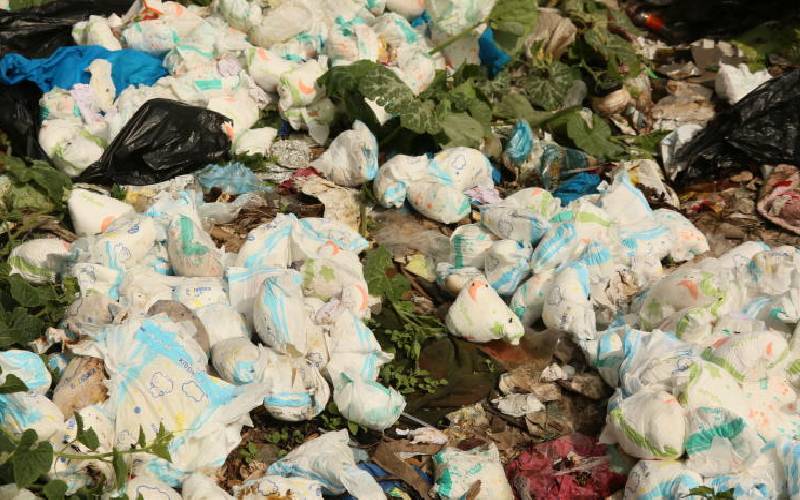×
The Standard e-Paper
Kenya’s Boldest Voice

We can make money, create jobs and lift our economy through disposable diapers. Yes, those smelly diapers! The usefulness of diapers does not have to end after the baby is done with them. This is exactly what circular economy entails.
As aptly described by the European Commission, circular economy encourages maintaining the value of products, materials and resources for as long as possible by returning them back to the product cycle at the end of their use, and minimising generation of waste.